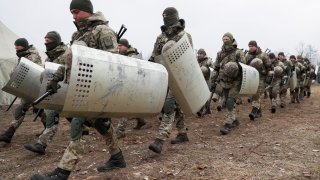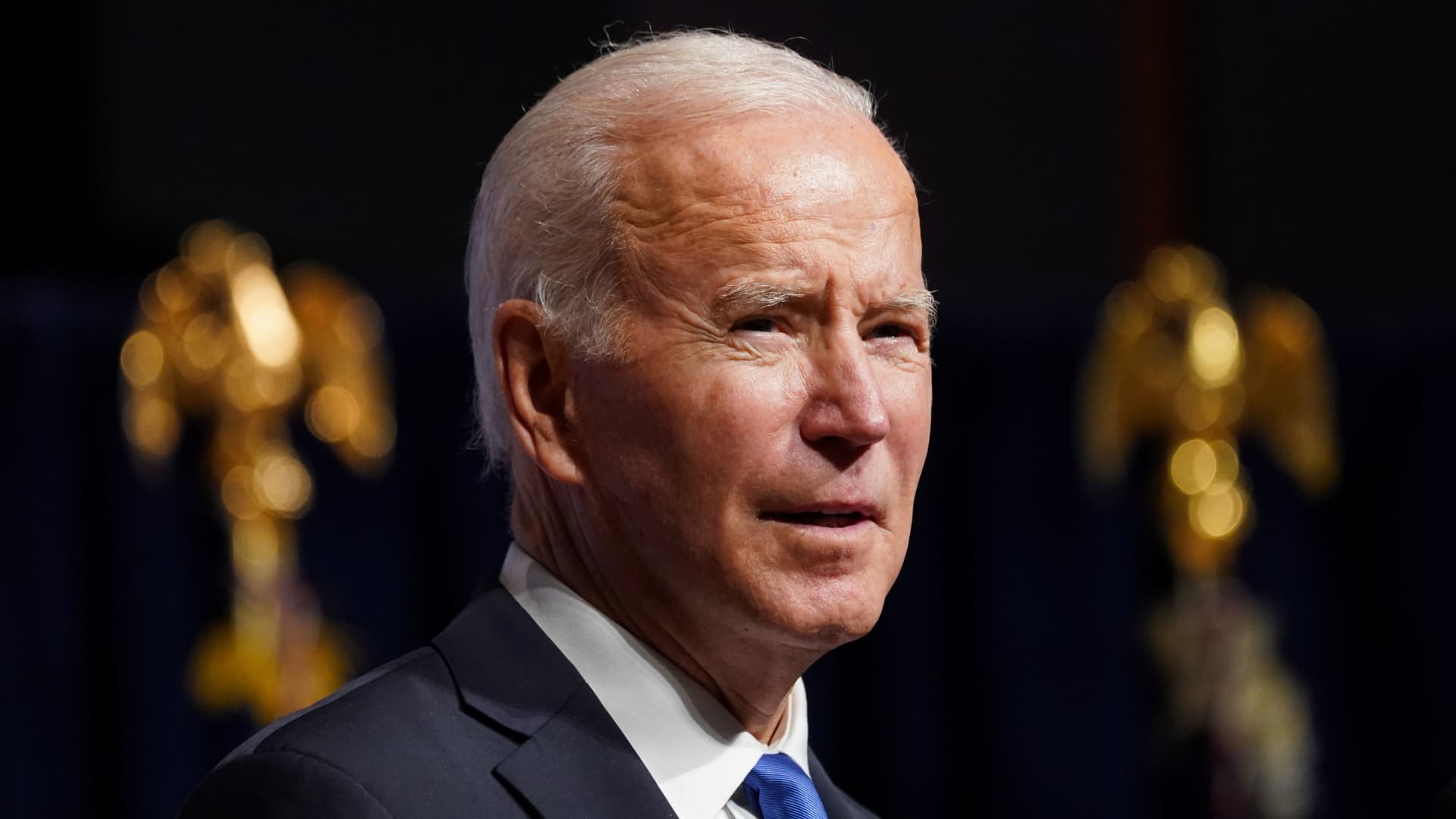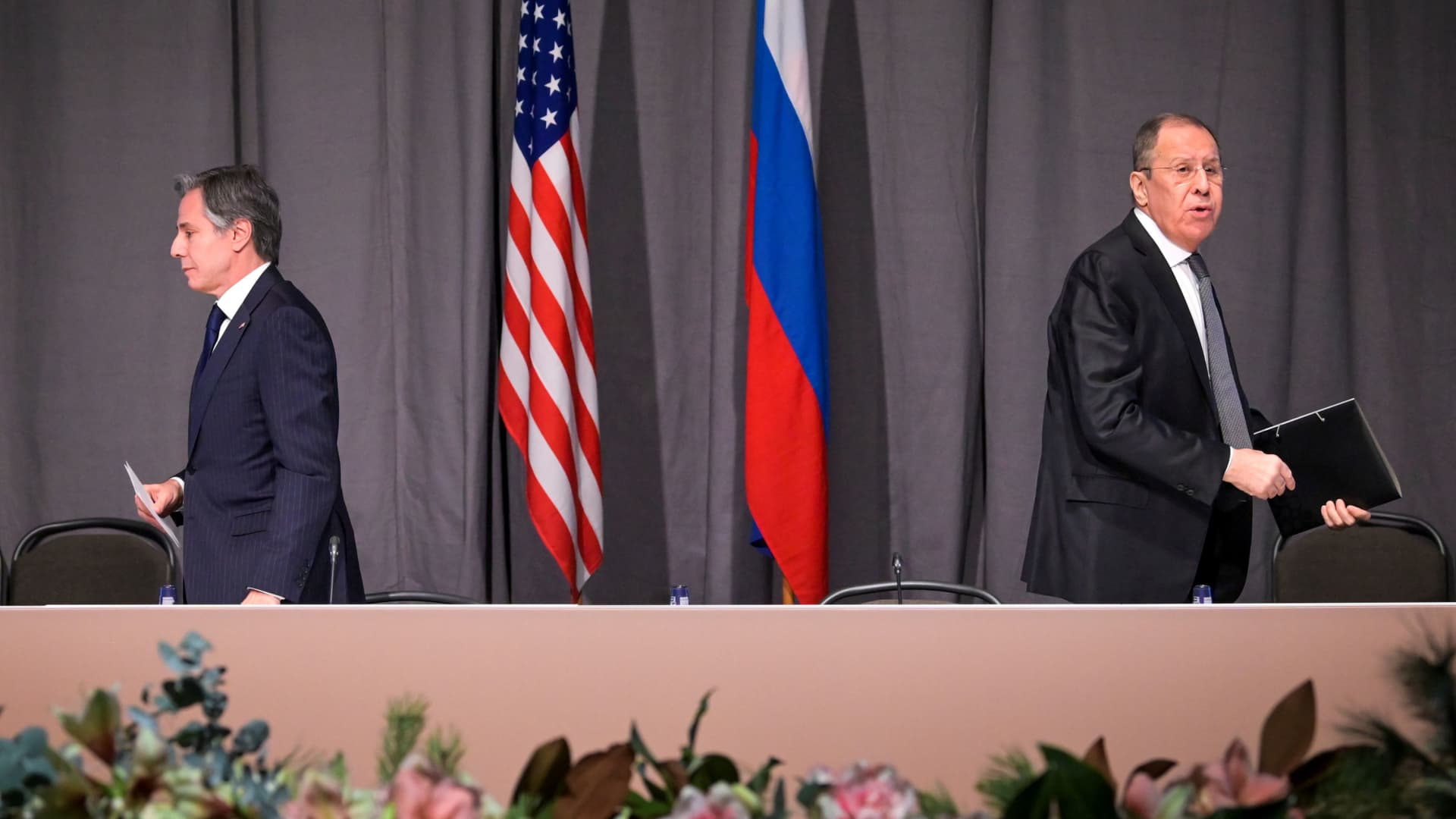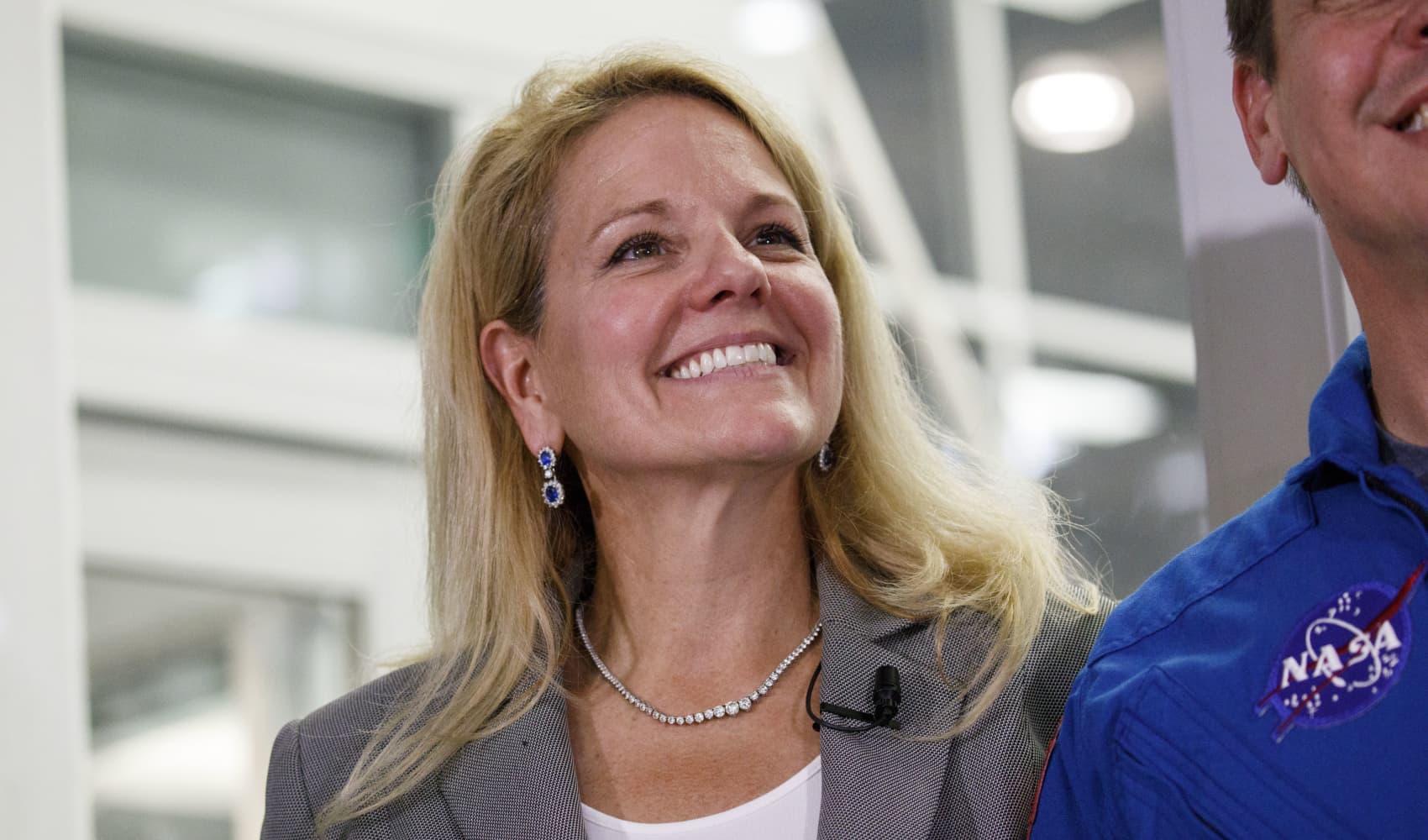
- The Biden administration said Friday that it was consulting with Congress and allies on a range of options aimed at dissuading Russia from carrying out a potential attack on Ukraine.
- President Biden, White House press secretary Jen Psaki and Secretary of State Antony Blinken all issued warnings Friday.
- In recent weeks, Ukraine has warned Washington and European allies that Russian troops have amassed along its border. Meanwhile, Moscow has accused Kyiv of pursuing its own military build-up.

WASHINGTON – The Biden administration said Friday that it was consulting with Congress and allies on a range of options aimed at dissuading Russia from carrying out a potential attack on Ukraine.
President Joe Biden himself said Friday that his administration was preparing actions to make it tough for Russia to conduct its second invasion of Ukraine within a decade.
We've got the news you need to know to start your day. Sign up for the First & 4Most morning newsletter — delivered to your inbox daily. Sign up here.
In recent weeks, Ukraine has warned Washington and European allies that Russian troops have amassed along its border. Meanwhile, Moscow has accused Kyiv of pursuing its own military build-up on the border.
Biden hopes the U.S. can prevent the situation from escalating.
Money Report
"What I am doing is putting together what, I believe to be, will be the most comprehensive and meaningful set of initiatives to make it very, very difficult for Mr. Putin to go ahead and do what people believe he may do," Biden told reporters Friday after an address at the White House.
White House press secretary Jen Psaki told reporters later in the day that the Biden administration was monitoring the situation on the Ukrainian and Russian border.
"We can't predict from here what President Putin's calculus is or what the Russians' calculus is. We saw what they did in 2014. We've seen what they're doing on the border and we're going to consult with our allies and partners and Congress here to be prepared for a range of options," Psaki said referring to the illegal Russian annexation of Crimea.
The seizure of Crimea in 2014 sparked international uproar and triggered a series of sanctions on Moscow. Shortly after the annexation, a war broke out in eastern Ukraine between government forces and Russian-backed separatists.
Secretary of State Antony Blinken called on Russia to de-escalate tensions by first removing its troops from the border.
"Resolving anything diplomatically when a gun is being held to someone's head, is very, very difficult. So, I think that's the first step," Blinken told a virtual audience on Friday.
The nation's top diplomat also warned that there would be trouble for Russia if it continued its provocative actions against Ukraine.
"If Russia just decides to pursue a confrontational course, if it renews its aggression, there will be very serious consequences and not just from us, but from other countries as well as Europe. I hope very much that Russia factors that into its thinking, especially because there is a much better way forward," Blinken said. "Confrontation would be in no one's interest."
Earlier this week, NATO Secretary-General Jens Stoltenberg warned that any future Russian aggression against Ukraine would come with serious political and economic consequences for Moscow.
"Ministers made clear that we stand by our decisions. Our support for the sovereignty and territorial integrity [of Ukraine and Georgia] remains unwavering," Stoltenberg said during a NATO meeting in Riga, Latvia.

Blinken's comments follow a meeting with his Russian counterpart Sergey Lavrov on the sidelines of the Organization for Security and Cooperation ministerial in Stockholm.
Lavrov dismissed suggestions that Moscow was preparing for an attack on Ukraine and defended Russia's right to deploy troops on its own territory.
"Everyone is talking about the escalation of tension in Europe. In particular, on the Russian-Ukrainian border. You know our take on this very well as President Putin stated we don't want any conflicts," Lavrov said.






